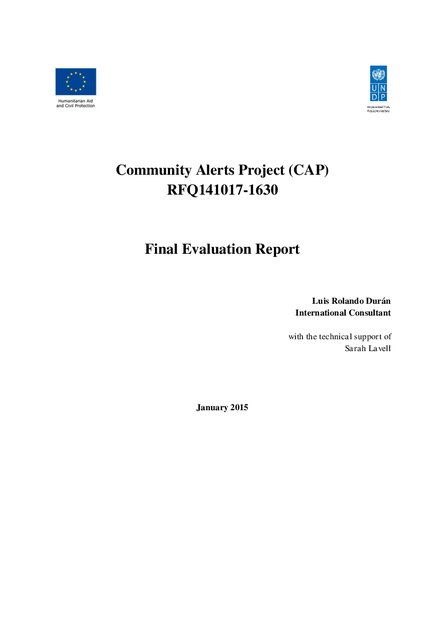
UNDP CAP initiative considers that alerting communities is a process characterised by multiple challenges: an effective alert must be issued in multiple formats to reach the larger proportion of the population and must be consistent, intelligible and trusted. Current existing systems are challenged to reach all publics segments in all time and in a coherent and effective manner. While "scientific" components of Early Warning Systems are being addressed by several regional projects reinforcing forecasting capacities such as the CIMHlead ERC project and the DEWETRA platform, much remains to be done to achieve a hazard information flow from forecaster to population at risk, through coordinated national mechanisms.
This Community Alert Project (CAP), financed by the European Commission Humanitarian Aid and Civil Protection DIPECHO program, targeted six pilot communities within three countries (Grenada, Dominica, St. Vincent and the Grenadines) to enhance community resilience and demonstrate a coherent approach to emergency alerting.
This evaluation identifies the outputs produced and the contributions to results at outcome level as well as positive or negative changes produced along the way, including possible unexpected results.
Key elements observed are:
- The relevance of the project, and in particular its regional dimensions
- The effectiveness of the achievement of results at output level and efficiency with which the ECHO resources have been used
- The usefulness and sustainability of the results/project targets for the beneficiaries
- UNDP’s performance as development partners and added value to the expected results